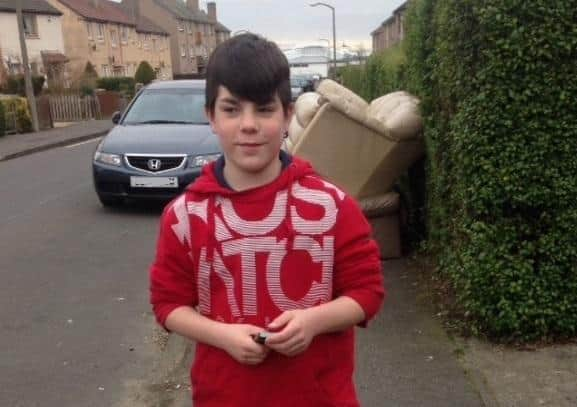Diabetic schoolboy Blake Ross, 13, was 'abandoned' on Edinburgh bus before dying in hospital, court told
and live on Freeview channel 276
Blake Ross was described as being "easily influenced" and "easily led" and needing quite a high level of support.
A social worker who was involved in Blake's care told the High Court in Edinburgh: "He had been exposed to what happened on the street, but he was not street aware."
Advertisement
Hide AdAdvertisement
Hide AdJudith Armstrong, 37, said she knew that Blake had received a diagnosis of diabetes in childhood.


Miss Armstrong said he looked like a 13-year-old boy but struggled with "emotional literacy".
She was giving evidence at the trial of Derek McNeill, 52, who is accused of wilfully neglecting, exposing and abandoning Blake in a way likely to cause him unnecessary suffering or injury to health between February 11 and 13 in 2017 in Edinburgh.
It is alleged that in the knowledge the child was unaccompanied and a missing person and had a medical condition requiring treatment and monitoring he failed to inform the relevant authorities that he was in his care and took him to his home address where he spent two nights in unsanitary conditions.
Advertisement
Hide AdAdvertisement
Hide AdIt is also alleged that he failed to seek or attempt to seek medical attention and treatment for the teenager despite his deteriorating condition and abandoned him unsupervised on a public service vehicle at Murrayburn Road, in Edinburgh.
It is said that Blake did not have access to timely medical treatment and developed ketoacidosis and died at The Royal Hospital for Sick Children in Edinburgh on February 13 in 2017.
The allegations against McNeill are brought in a charge under the Children and Young Persons (Scotland) Act.
The court heard that Blake's cause of death was given as complications of insulin dependent diabetes.
Advertisement
Hide AdAdvertisement
Hide AdMcNeill also faces further charges of a sexual offence and attempting to pervert the course of justice. He has pleaded not guilty to all the charges.
The court heard that at the time Blake was resident at a close support unit catering mainly for adolescents in Edinburgh.
Miss Armstrong said there were occasions when Blake refused to manage his diabetes properly.
Defence solicitor advocate Brian Gilfedder asked if that included refusing to take insulin and she replied: "Yes."
Advertisement
Hide AdAdvertisement
Hide AdChristopher Borowski, a residential care officer, who acted as Blake's key worker at the unit, said the teenager was in receipt of two types of medication. One was taken once a day but the other he would take about five times daily before meals.
Mr Borowski, 56, said the teenager had a monitor for checking his blood and the medication was kept in an office.
He said: "I can't remember him ever refusing to take his readings. He was quite obliging most of the time, if not all of the time."
Mr Borowski said he was "a lovely, lovely lad". He told the court: "Blake was 13, but I saw him more as an eight year old."
Advertisement
Hide AdAdvertisement
Hide AdHe said Blake left the unit to go to a leisure centre but did not arrive back for dinner. Efforts to trace him failed and he was reported as missing that evening.
Mr Borwoski went to the gym centre the following morning and saw from footage that Blake had arrived at the leisure centre.
The trial before judge Lord Weir continues.